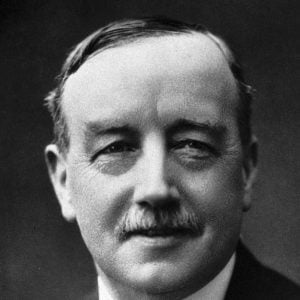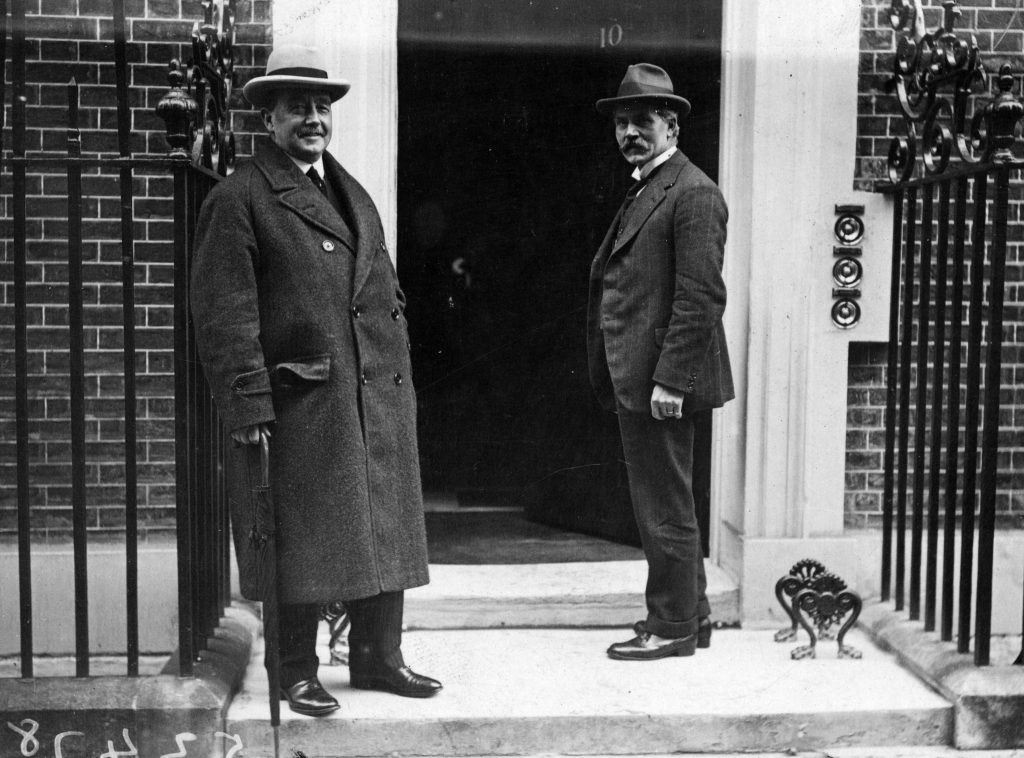Arthur Henderson
Speed read
Arthur Henderson was awarded the Nobel Peace Prize for his tireless efforts as Chairman of the World Disarmament Conference.

Full name: Arthur Henderson
Born: 13 September 1863, Glasgow, Scotland
Died: 20 October 1935, London, United Kingdom
Date awarded: 10 December 1934
Henderson as foreign secretary
As Foreign Secretary in Ramsay MacDonald’s government from 1929 to 1931, Arthur Henderson spent a lot of energy establishing diplomatic relations with the Soviet Union. He was also able to persuade Parliament to accept the Young Plan which reduced German reparations after WWI. Henderson was also a strong spokesperson for Egyptian independence. An agreement on this was first signed in 1936.
”The whole of mankind is watching Mr. Henderson’s work with the greatest anxiety, as it might decide the future of the world for a long time ahead.”
Halvdan Koht, Speech at the Nobel Banquet, 10 December 1934.

”There can be no real disarmament except on the basis of the collective peace system of the League of Nations.”
Arthur Henderson, Nobel Lecture, 11 December 1934.
Disarmament for a lasting peace
Henderson grew up in poverty in the Scottish city of Glasgow. He never completed his primary education because he had to help his family earn a living, but his work in the labour union and the Methodist church laid the foundation for an impressive political career. Henderson helped to found the British Labour Party, and he served as party secretary, chairman of the party’s executive committee, member of Parliament and foreign secretary. Henderson was a driving force behind the League of Nation’s World Disarmament Conference in Geneva. Elected conference president, he kept negotiations alive despite opposition from major powers and his own government. It is for these efforts that he was awarded the Nobel Peace Prize.
| Methodist The United Methodist Church is one of the world’s largest Protestant denominations. Rooted in the revival led by John Wesley in the Church of England in the 1730s. Stresses personal faith as the path to salvation. |
Collapse of the 1930s negotiations on disarmament
Arthur Henderson’s great project, disarmament negotiations in Geneva under the auspices of the League of Nations, failed for several reasons. None of the major powers were willing to relinquish national control of their military forces. Even more importantly, fears of a German rearmament were increasing. In the autumn of 1933, Hitler withdrew Germany from the League of Nations. Two years later he violated the WWI peace treaty by implementing compulsory military service and expanding the air force and navy. A new and dangerous arms race had begun.
”Henderson became the embodiment of the League’s disarmament effort.”
Biography about Arthur Henderson, Nobel Lectures, Peace, 1926-1950.
Learn more
Arthur Henderson was born in Glasgow, the son of David Henderson, a manual worker. When his father died in 1872, leaving the family in poverty, Arthur left school to work in a photographer’s shop ...
Disclaimer: Every effort has been made by the publisher to credit organisations and individuals with regard to the supply of photographs. Please notify the publishers regarding corrections.
Nobel Prizes and laureates
Six prizes were awarded for achievements that have conferred the greatest benefit to humankind. The 14 laureates' work and discoveries range from quantum tunnelling to promoting democratic rights.
See them all presented here.
